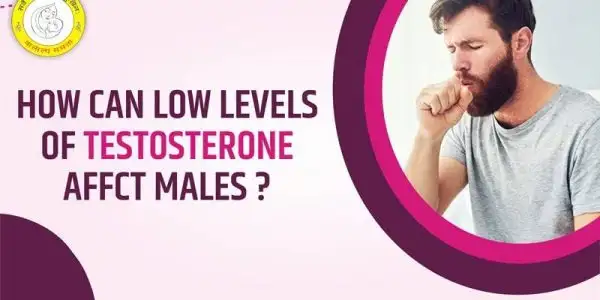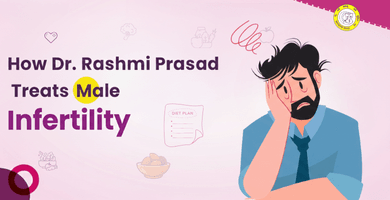How Can Low Levels of Testosterone Affect Males

Testosterone is the main male sex hormone made in the testicles. Men need testosterone to produce sperm. Testosterone levels tend to decline as men age, leading to low blood testosterone levels in older men. This can affect some men, and medical professionals call it testosterone deficiency syndrome (TD) or low testosterone.
In this Article
A lack of the essential substance is called a deficiency. The syndrome is a combination of symptoms that indicate a health condition or disease. If your testosterone production drops, you may experience a variety of symptoms. The symptoms of low testosterone are usually subtle, and, in this blog, we will tell you about the effect of low testosterone levels on us.
What Causes Low Testosterone Levels in Men?
Testosterone is an important hormone in men, which is mainly produced in the testicles. Here we have listed the main causes of low testosterone levels that everyone should know about.
1. Aging
Testosterone levels begin to decline with age, especially after age 30. By age 40, testosterone levels drop by about 1% annually.
2. Stress and Poor Lifestyle Choices
Stress and poor diet, lack of exercise and not getting enough sleep can lower testosterone.
3. Obesity
Having excess body fat can cause hormonal imbalances, which can lead to a lack of testosterone.
Common Symptoms of Low Testosterone in Men
Low testosterone can manifest in various ways, affecting physical, emotional, and sexual health. Here are the most common symptoms:
1. Decreased Sex Drive (Low Libido)
Testosterone, the primary hormone that drives men to sex, is responsible for their sexual drive. A decrease in testosterone can lead to decreased sexual desire. It has been shown that testosterone levels begin to decrease in men after age 30. Men in their 30s experiencing low testosterone may have low libido, leading to psychological problems like anxiety and stress. A low sex drive can also cause stress in romantic relationships. This would only increase the stress for most men.
2. Low Sperm Count and Reduced Semen Volume
Androgens like testosterone and dihydrotestosterone play a crucial role in stimulating your prostate and seminal vessels, which produce semen. Low testosterone can also cause a decrease in your body’s ability to produce sperm. This could lead to a lower sperm count. Low testosterone may even lead to infertility in some cases.
3. Mood Swings and Depression
Hormonal imbalances, including low testosterone, can cause mood irregularities such as irritability, anxiety, and depression. Men with Low-T often report feeling emotionally drained.
4. Increased Body Fat and Gynecomastia
Low testosterone can increase body fat and gynecomastia (enlarged breast tissue). An imbalance in testosterone or estrogen can lead to gynecomastia.
5. Reduced Bone Mass (Osteoporosis)
Osteoporosis can be a condition that is often associated with women. However, males who have low testosterone may also experience bone loss. Low testosterone can lead to lower bone volume and more risk of fractures in older men.
6. Memory Problems and Brain Fog
Low testosterone can also affect your ability to focus or verbally express your thoughts. People often associate memory problems with low testosterone. Low testosterone can lead to “brain fog” or poor memory in some men. This, combined with other cognitive symptoms, can harm your academic performance or workplace. Research has not yet identified a clear link between testosterone supplementation and improved memory in men with low testosterone.
Also, Read the next article: Increase your Sperm Count and Improve Fertility
Treatment Options for Low Testosterone
Low testosterone affects our energy, mood and sexual health. Here we have told some easy ways by which testosterone deficiency can be cured.
1. Testosterone Replacement Therapy (TRT)
TRT is a common treatment for Low-T, involving injections, gels, or patches to boost testosterone levels.
2. Lifestyle Changes
Regular exercise and a good diet are the main factors that increase testosterone levels.
3. Reduce stress
Reducing stress can help increase testosterone levels.
4. Improved Sleep
Getting enough sleep can help maintain healthy and high testosterone levels.
Conclusion
As they age, testosterone levels in males decrease. A variety of factors can cause low testosterone. Low testosterone levels in males may develop symptoms. Doctors can check your testosterone levels using a simple blood test. Low testosterone can be treated with testosterone replacement therapy. So, if you face any kind of problem contact Gynaecologist Doctor in Patna today.
FAQs
When do men start losing testosterone
Testosterone, the male sex hormone, naturally begins to decrease around age 30. This decline is gradual and varies from person to person.
What causes low testosterone in young males
While it’s more common in older men, young males can also experience low testosterone. This can be due to:
Underlying medical conditions like testicular damage, pituitary gland problems, or certain chronic illnesses.
Side effects of medications.
Genetic factors.
What is a dangerously low testosterone level
A testosterone level below 300 nanograms per deciliter (ng/dL) is generally considered low. However, it’s important to note that this can vary, and it’s best to consult a doctor for accurate diagnosis.
long-term effects of low testosterone
Prolonged low testosterone can lead to:
Reduced sex drive and erectile dysfunction
Decreased muscle mass and strength
Mood changes, including depression and irritability
Bone loss
Increased risk of heart disease and other health problems
Low testosterone in men
Symptoms of low testosterone can include fatigue, decreased energy, loss of body hair, and difficulty concentrating. In addition to aging, other causes can be obesity, certain medications, and underlying medical conditions.
What causes low testosterone in 30s
The primary cause of low testosterone in your 30s is the natural aging process. However, other factors like stress, lack of exercise, and unhealthy lifestyle choices can contribute to lower levels.
Low testosterone in 20s male
While less common, it’s possible for young men in their 20s to have low testosterone. This could be due to underlying medical conditions, genetic factors, or certain medications.



